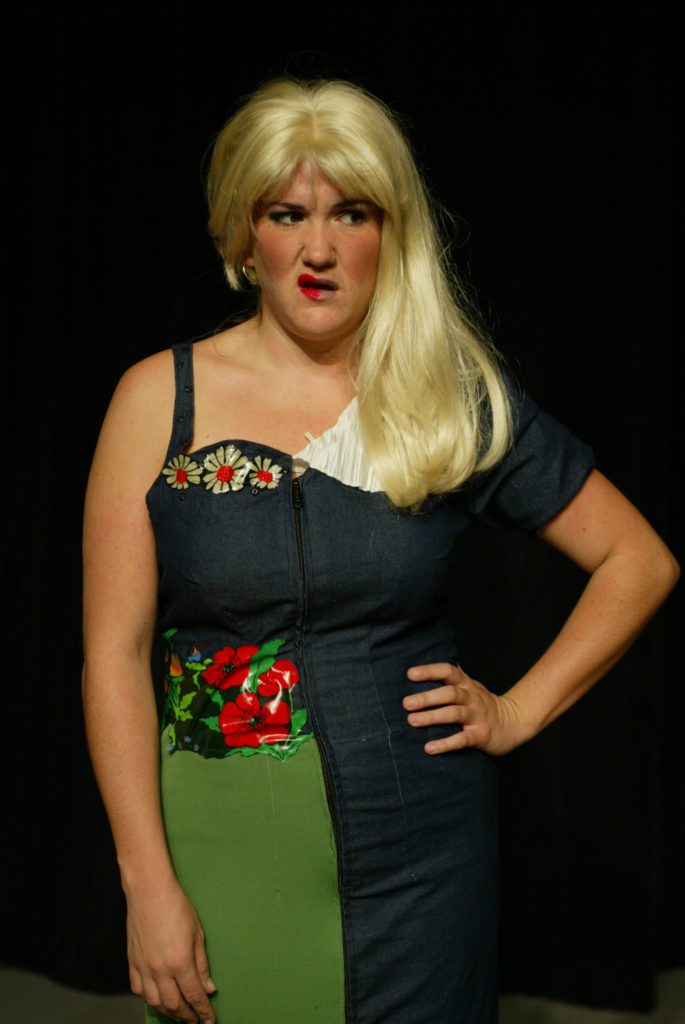Buntport Theater Company has been producing outstanding alternative theater since 1998. Since obtaining their own space in 2001 they have realized great success, due in large part to the originality, intelligence, energy and precision displayed in every one of their productions. Members of the company collaborate to produce elegantly written original works that pertain to modern issues. But what defines Buntport as a rapidly growing cultural force in Denver theater is its penchant for transforming theater into an exotic experiential cocktail composed of one part dizzying roller-coaster ride, one part classical literary relevance and one part wrecking-ball deconstructionism.
For most companies the approach, much less the individual production, would be hard to pull off on a consistent basis, but this team regularly produces work that consumes audiences with its raptorial eye for sleek, swift, resonant theatrics – be they dramatic, comedic, or a little of both.
“Misc.” is Buntport’s season opener, comprised of two one-acts that contrast sharply with one another. “Elevator” is a frieze of motion on stage, employing internal dialogue among four characters as the point of action that drives the play. “Cinderella” is a nearly wordless jaunt into the cellars of surrealism embedded below the ground level of many classic fairy tales.
“Elevator” contrasts the outwardly indifferent behavior prominently displayed in elevators with the internal conflicts and wars we all wage in our heads on a daily basis. The dialogue speeds forth like an express train of stream of consciousness debate, with one character’s thoughts cleverly woven into another’s. The elevator itself is supremely slow, surreptitiously engaging the audience in the foot tapping, eye-rolling, blank-wall-staring behavior of the characters on stage, who painstakingly wait to rise from one floor to the next while all the events of their lives flood through their minds like a cranial tidal wave. The use of the elevator as the vehicle behind the conflict can’t be overlooked, as each of the characters’ dialogue exposes their climb towards one climactic experience or another – except for the character (reminiscent of a segment of society that never really works that hard and never really cares what people think about it) who gets on the elevator to make the short trip up to the next floor “just because she can.”
“Cinderella” is an intricate magical realism piece in which utterances are rarely intelligible, but inflections are well understood. The play revolves around paradoxes and the collaborators successfully carry that theme into the dialogue, which not only leads the audience into the outer world of fairy tale, but also makes them forsake conventional logic in order to listen differently. This piece achieves Buntport’s goal of transformational theater not just on the stage, but in the minds of the audience as well, where the suspension of disbelief effortlessly rises to an all-time high.
“Cinderella” is comical, but it also can claim a monumental achievement in the realm of “fresh” theater. The choreography is outstanding, as are the costumes, and would-be playwrights and directors should take note of the tremendous plot enhancement achieved by use of the background music. In other words, it is everything NOT spoken that drives this play, in utter contrast with the earlier, dialogue-driven “Elevator.”
Although both works are tremendously innovative, “Cinderella” stands out as a true piece of artistry that pushes the boundaries of contemporary theater into a rarely explored dimension. Actress Erin Rollman gives an amazing performance as the wicked stepmother, transforming her character into an obviously wrong-minded maternal icon who takes anything but a forthright approach to parenting. Rollman does double duty as a hypnotic fairy godmother who enchants and invents with every movement she makes, playing the one character who never utters so much as a sound. Hannah Duggan plays the wonderfully duplicitous stepsister – switching from coy debutante to party girl with an effortless change in inflection and movement. Erik Edborg performs the perfect Anti Cinderella with wit and his trademark over-the-top physical comedy. Evan Weissman pulls off enough linguistic gymnastics to keep the audience reeling while he beguiles the stage with an embodiment of magic.
The offstage team of Brian Colonna, Matt Petraglia and SamAnTha Schmitz have to be mentioned not only for their collaboration in the work’s composition, but for the obvious synchronicity they provide in lighting and, most notably, sound. Without the precise execution of all these elements, the facets of this gem of a play would not be buffed to perfect clarity.
Without a doubt, “Misc.” is edgy, surrealistic, experimental theater that endeavors to relay an experiential transformation to the audience. Without a doubt, it succeeds. Amazingly, it is also tremendously fun – so if you’re new to experimental work, this is a great one to start with.
-Cilicia Yakhlef, September 22, 2003, Colorado Daily
